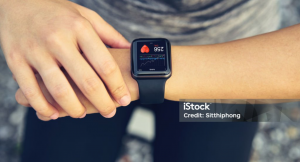Feature Face-Off: Comparing Fitness Trackers for Active Lifestyles
5 min read
Are you ready to take your fitness journey to the next level with a cutting-edge fitness tracker? In a world where health and wellness are becoming increasingly prioritized, the demand for wearable technology that tracks activity, monitors health metrics, and provides actionable insights has never been higher. But with a myriad of options available on the market, each boasting a unique set of features and capabilities, how do you choose the perfect fitness tracker to support your active lifestyle? From step counting and heart rate monitoring to sleep tracking and GPS navigation, the possibilities seem endless. Join us as we embark on a journey to compare the top fitness trackers on the market and help you find the ideal companion for your fitness goals and aspirations.
Unveiling the Titans: A Closer Look at Fitness Trackers
In today’s digital age, fitness trackers have become indispensable tools for health-conscious individuals seeking to optimize their physical activity and improve their overall wellbeing. These wearable devices come in various shapes, sizes, and price points, with each offering a unique blend of features and functionalities. But with so many options to choose from, ranging from basic step counters to advanced smartwatches, it’s easy to feel overwhelmed by the sheer abundance of choices. That’s where our comprehensive comparison comes in. We’ll dive deep into the key features, performance metrics, and user experiences of the leading fitness trackers, allowing you to make an informed decision and select the device that best aligns with your fitness goals, preferences, and lifestyle.
The Battle Begins: Tracking Performance Metrics
At the core of every fitness tracker lies its ability to monitor and analyze key performance metrics, providing valuable insights into your activity levels, exercise intensity, and overall health status. From basic step counting and calorie tracking to advanced features like heart rate monitoring, GPS tracking, and sleep analysis, fitness trackers offer a wealth of data to help you understand and optimize your fitness routine. But how do you determine which device offers the most accurate and comprehensive tracking capabilities? We’ll compare the accuracy and reliability of key metrics such as step counts, heart rate readings, distance traveled, and sleep duration to identify the top performers in each category. Whether you’re a seasoned athlete training for a marathon or a casual gym-goer looking to stay active, we’ll help you find the perfect fitness tracker to track your progress and achieve your fitness goals.

The Clash of Features: Beyond Basic Tracking
In addition to basic activity tracking, today’s fitness trackers offer a wide range of advanced features and functionalities designed to enhance your workout experience and improve your overall health and wellness. From built-in GPS for accurate outdoor activity tracking to onboard sensors for monitoring blood oxygen levels and stress levels, the possibilities are endless. But which features are truly essential for your active lifestyle? We’ll explore the most popular features and functionalities offered by fitness trackers, including workout modes, smart notifications, music playback, waterproofing, and battery life, to help you determine which device offers the perfect blend of performance and convenience. Whether you’re an avid runner, cyclist, swimmer, or yogi, we’ll help you find the ideal fitness tracker that meets your unique needs and preferences.
The Design Dilemma: Form and Function
In the world of fitness trackers, design plays a crucial role in both aesthetics and usability. From sleek and stylish wristbands to rugged and durable smartwatches, the design of a fitness tracker should complement your personal style and seamlessly integrate into your daily life. But beyond aesthetics, the design should also prioritize comfort, durability, and functionality, ensuring that the device remains comfortable to wear during even the most intense workouts. We’ll evaluate the design elements of the top fitness trackers, including materials, form factor, display quality, and strap options, to help you find the perfect blend of form and function. Whether you prefer a minimalist and lightweight design or a feature-packed smartwatch with a vibrant touchscreen display, we’ll help you find the perfect fitness tracker that ticks all the boxes.
The Price Point: Balancing Budget and Features
When it comes to choosing a fitness tracker, price is undoubtedly a significant factor for many consumers. While premium devices offer the latest features and cutting-edge technology, they often come with a higher price tag that may be out of reach for budget-conscious individuals. On the other hand, budget-friendly options may sacrifice some advanced features and build quality in favor of affordability. We’ll explore the pricing and value proposition of the top fitness trackers on the market, helping you strike the perfect balance between features, performance, and budget. Whether you’re willing to splurge on a premium device or seeking a more affordable option that still delivers excellent value, we’ll help you find the perfect fitness tracker that meets your needs without breaking the bank.

Conclusion
In conclusion, the world of fitness trackers offers a diverse array of options to suit every lifestyle, preference, and budget. From basic step counters to advanced smartwatches, there’s a fitness tracker out there for everyone. By considering factors such as tracking accuracy, features, design, price, and user experience, you can find the perfect companion to support your active lifestyle and help you achieve your fitness goals. So, arm yourself with knowledge, weigh your priorities, and choose the fitness tracker that empowers you to live your healthiest, happiest life.
FAQs
1. Are fitness trackers accurate? While fitness trackers may not be 100% accurate, they provide valuable insights into your activity levels and overall health status. Factors such as device placement, user movement, and sensor technology can affect accuracy, but most fitness trackers offer reliable tracking for everyday use.
2. Can fitness trackers help with weight loss? Fitness trackers can be valuable tools for weight loss by monitoring activity levels, calorie expenditure, and exercise intensity. By setting goals, tracking progress, and receiving personalized insights, users can stay motivated and make informed decisions to support their weight loss journey.
3. Do fitness trackers track sleep? Many fitness trackers offer sleep tracking features that monitor sleep duration, quality, and patterns. By analyzing sleep data, users can identify areas for improvement and make lifestyle changes to optimize their sleep hygiene and overall wellbeing.
4. How long do fitness tracker batteries last? Battery life varies depending on factors such as device usage, features enabled, and battery capacity. Most fitness trackers offer battery life ranging from several days to a few weeks on a single charge, but this may vary depending on individual usage patterns.
5. Can I wear my fitness tracker while swimming? Many fitness trackers offer waterproof or water-resistant designs that are suitable for swimming and other water-based activities. Be sure to check the device specifications and water resistance rating to ensure it meets your needs for swimming and other aquatic sports.





